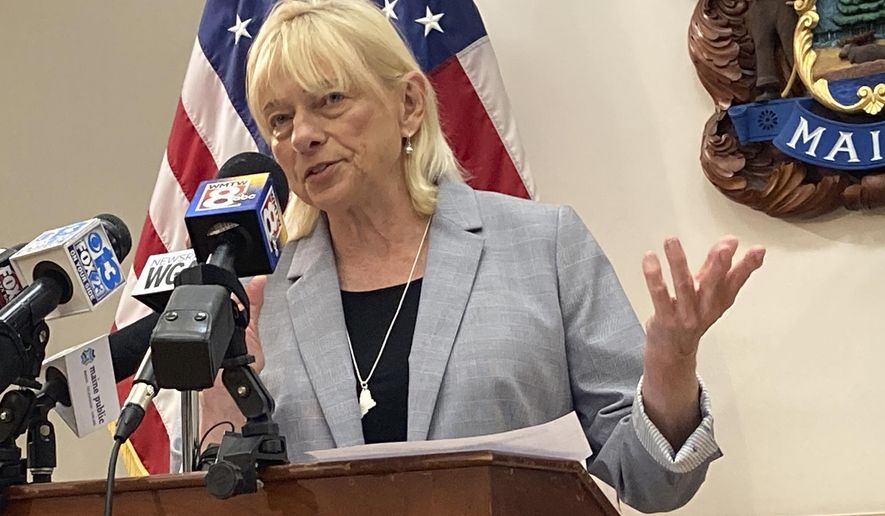An evangelical church in Maine has asked the U.S. Supreme Court to block any return of the state’s COVID-19 restrictions on worship gatherings.
Calvary Chapel Bangor said it fears a reimposition of the restrictions implemented by Democratic Gov. Janet Mills or Dr. Nirav Shah, the state’s top public health official, as the delta variant of the coronavirus gains momentum around the nation.
“Since Governor Mills lifted the restrictions on all capacity limits in public indoor venues on May 24, she contends Calvary Chapel’s claims are moot and no effective relief can be granted,” reads a statement from Liberty Counsel, the public interest law firm representing Calvary Chapel.
“However, the governor could enact them again at any time for any reason,” the statement reads, adding that Dr. Shah, an epidemiologist, has said he “expects the Delta variant’s impact to grow in the coming weeks.”
Marc Malon, a spokesman for Maine Attorney General Aaron Frey, said in a statement: “For more than two months, there have been no restrictions whatsoever on the size of gatherings, and the state of emergency expired at the end of June. Given that, we are disappointed that Calvary Chapel continues to waste public and judicial resources by attempting to litigate an issue that is now moot.”
In its emergency petition to the Supreme Court, Liberty Counsel noted that even following other rulings striking down such prohibitions, “Maine maintained the dubious distinction of imposing the most severe restrictions in the nation on places of worship.”
Direct appeals from Maine and other states under the jurisdiction of the U.S. Court of Appeals for the 1st Circuit are handled by Supreme Court Justice Stephen G. Breyer. If he is unavailable, the Calvary Chapel appeal would be reviewed by Justice Samuel A. Alito Jr.
On June 4, U.S District Judge Nancy Torresen, appointed in 2011 by President Obama, ruled that Calvary Chapel had no case against Ms. Mills since Maine by then had eliminated its pandemic restrictions.
Liberty Counsel Chairman Mat Staver told the Bangor Daily News the church would appeal that ruling to the 1st Circuit and anticipated the Supreme Court would ultimately take up the case.
“The U.S. Supreme Court has already ruled against these unconstitutional worship bans at least 10 times despite Governor Janet Mills threatening to enact her draconian restrictions again. We are asking the High Court to prevent Gov. Janet Mills from reimposing her unconstitutional restrictions once and for all,” Mr. Staver said in a statement.
One public health advocate, Anthony J. Santella, professor and interim chair of the University of New Haven’s Department of Health Administration and Policy, told The Washington Times that restrictions may have to be imposed on houses of worship.
“I think for the foreseeable future, and in my opinion that would be the remainder of the summer, fall and winter, we should expect to see some of those public health mitigation strategies and restrictions we saw last year come back,” Mr. Santella said in a telephone interview.
He credited this to “mediocre vaccination rates, a very prevalent delta variant, [and] upcoming variants that some scientists believe could be more transmissible, more infectious, and perhaps even vaccine resistant.”
Along with indoor mask wearing, the public health scientist said, there “will be several other restrictions that are just steps behind it,” including physical distancing indoors and reductions in capacities at facilities.
Asked if churches should be treated differently than other indoor venues, Mr. Santella said: “I don’t think any one type of institution organization should be exempt from public health mitigation strategies.”
• Mark A. Kellner can be reached at mkellner@washingtontimes.com.




Please read our comment policy before commenting.